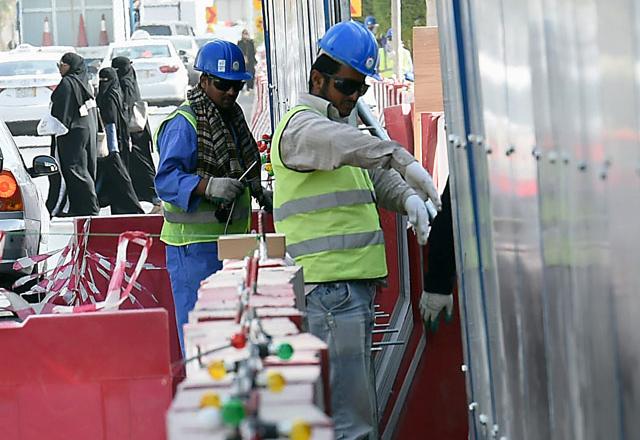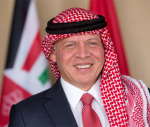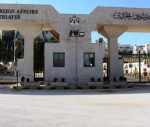You are here
Saudi Arabia rebuilding capital with $22.5b metro
By AFP - Oct 30,2014 - Last updated at Oct 30,2014

RIYADH — Saudi Arabia's sprawling and congested capital is in a race against time to complete its $22.5 billion metro system within four years, a senior official said on Wednesday.
Abdullah Allohaidan told AFP in an interview that the rail and bus development, whose construction is changing the face of Riyadh, is the largest such project under way in the Middle East "and I think in the whole world".
Construction began a year ago but has accelerated in the last few weeks, with road closures, digging equipment and hard-hatted workers taking over the city's business core, to the frustration of drivers facing detours and lane-closures.
"I think the biggest challenge we are facing is the duration of the project," said Allohaidan, assistant to the metro director.
Plans call for construction to be completed by the end of 2018.
"Usually the duration for those projects is much longer," he said in front of colour-coded maps showing the metro's six lines that will cover 176 kilometres, supported by a bus network of 1,150 kilometres.
But with the population of Riyadh projected to reach 8.2 million by 2030, up from the current 5.7 million, "definitely we need a transportation system", he added. "Ninety per cent of the people here are using cars."
Saudi Arabia is the top oil exporter in the Organisation of Petroleum Exporting Countries (OPEC)group and its economy has been one of the best performing in the Group of 20 leading nations, according to the International Monetary Fund.
Three foreign consortiums are building the metro, with France's Alstom, Canada's Bombardier and Germany's Siemens among the major participants.
The city's existing public transportation system includes beaten-up minibuses carrying immigrant workers.
The buses, which cough their way past office towers in the business district, would look more at home in Africa.
'World-class'
Large American-model cars rule the city's multi-lane roads where thousands of people die every year.
Some Riyadh residents think the metro will appeal more to Riyadh's foreign workers, while Saudis would be reluctant riders.
Allohaidan says he can understand that perception, because the system will be something new to the kingdom. But he believes people, "especially Saudis", will use it.
The network will have a capacity of about three million passengers per day, and will even offer home pickups to transfer commuters living far from the nearest bus stop.
In ultra-conservative Saudi Arabia men and women are strictly segregated. Restaurants are divided into "family sections" and areas for single men.
In the Riyadh Metro offices, a two-metre train model shows that the railway carriages will be split in a similar way, with the addition of a first-class compartment.
In the world's only country where women are not allowed to drive, the transport system will provide them mobility, but Allohaidan said planners hope the metro will also attract the large under-20 population.
Civic authorities are looking at how to encourage the use of public transportation, while research is also being done about possible restrictions on the use of cars.
About 40 per cent of the metro will be underground and half will use viaducts in what is the biggest infrastructure project in Riyadh's history.
"This is a world-class metro," Allohaidan said. "We are rebuilding the city."
Related Articles
Saudi Public Transport Co. (Saptco) has won a $2.1 billion contract to operate and maintain buses in Riyadh jointly with French group RATP Dev. The 10-year deal is worth 7.885 billion riyals ($2.1 billion, 1.5 billion euros), Saptco indicated, noting that Riyadh authorities informed them they won the deal on Wednesday.
LAHORE, Pakistan — Pakistan's first metro line began operations on Monday in the eastern city of Lahore. Stretching 27 kilometres and d
Plunging oil prices could mean the first budget cuts for major exporter Saudi Arabia since 2002 but they are not expected to be large enough to stop growth in the Arab world's biggest economy.

















